The American Society of Hematology (ASH) will recognize exemplary hematologists who have made significant contributions to the field with several honorific awards at the 2024 ASH Annual Meeting and Exposition, being held December 7–10 in San Diego.
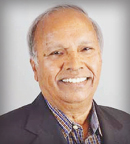
Mohandas Narla, DSc
“ASH is honored to recognize these outstanding hematologists, whose groundbreaking research, mentorship, and dedication have profoundly advanced the field,” said 2024 ASH President Mohandas Narla, DSc, distinguished scientist at New York Blood Center Enterprises. “These visionary leaders have left an indelible mark on hematology and made a lasting impact on the lives of those living with blood disorders.”
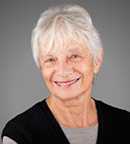
Éliane Gluckman, MD, PhD
2024 Honorific Award Recipients
The Wallace H. Coulter Award for Lifetime Achievement in Hematology is being presented to Éliane Gluckman, MD, PhD, of the University of Paris. Dr. Gluckman is being recognized for a lifetime of achievement in cord blood transplantation. She performed the world’s first human cord blood transplant, which established cord blood as an alternative stem cell source for patients in need of hematopoietic cell transplantation and shortened the delay between donor identification and actual transplant. Since that revolutionary procedure in 1988, there have been more than 40,000 transplants, with cord blood registries established worldwide. Dr. Gluckman is currently leading a project that examines immunogenetic factors that could predict the outcomes and probability of finding a donor for stem cell transplants in people living with sickle cell disease and other hereditary disorders.
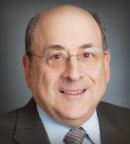
Stuart Orkin, MD
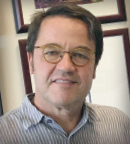
John Tisdale, MD
The Ernest Beutler Lecture and Prize is being presented to Stuart Orkin, MD, of Harvard Stem Cell Institute, and John Tisdale, MD, of the National Institutes of Health. This lecture and prize recognizes the work of these two physician-scientists for advancing the treatment of hemoglobin disorders. Dr. Orkin has made groundbreaking contributions to the understanding of the molecular mechanisms foundational to gene therapy for hemoglobin disorders, and Dr. Tisdale has led significant advances in hematopoietic cell transplantation, gene therapy, and clinical trials for these disorders, including sickle cell disease transplantation. Together, Drs. Orkin and Tisdale’s findings provided the foundation needed to develop the first U.S. Food and Drug Administration (FDA)-approved, cell-based gene therapies for beta-thalassemia and sickle cell disease.
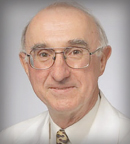
James George, MD
The ASH Award for Leadership in Promoting Diversity is being presented to James George, MD, of the University of Oklahoma. Dr. George is being honored for his exemplary leadership in building a stronger, more diverse hematology workforce. Under his leadership as ASH President in 2005, the Society collaborated with the Robert Wood Johnson Foundation’s Harold Amos Medical Faculty Development Program -(AMFDP) to create ASH-funded AMFDP positions in hematology. Since the program’s -inception, ASH has supported nearly 30 recipients, many of whom have risen to the ranks of senior faculty in their institutions.
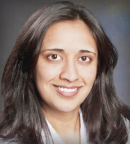
Ami Bhatt, MD, PhD
The William Dameshek Prize is being presented to Ami Bhatt, MD, PhD, of Stanford Medicine. Dr. Bhatt is being recognized for pioneering the development and application of genomic approaches to studying the microbiome—work that has improved outcomes for many human diseases. She has applied microbiomics in the clinical setting to study the impact of gut decontamination on transplant outcomes and has co-led efforts to study the microbiome in the context of evolving graft-vs-host disease prophylaxis strategies.
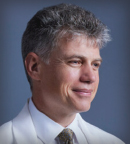
Sean J. Morrison, PhD
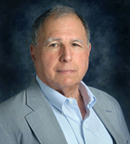
Douglas Cines, MD
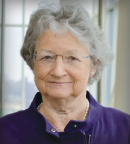
Katherine High, MD
The E. Donnall Thomas Lecture and Prize is being presented to Sean J. Morrison, PhD, of Children’s Medical Center Research Institute at UT Southwestern. Dr. Morrison, a scientist and renowned researcher, is being honored for his work in hematopoietic stem cell biology.
The Henry M. Stratton Medal is being presented to Douglas Cines, MD, of Perelman School of Medicine at the University of Pennsylvania, and Katherine High, MD, of The Rockefeller University. Dr. Cines, the recipient of the medal for basic science, is being honored for more than 40 years of research discoveries that have led to significant increases in the understanding and treatment of thrombocytopenic disorders, including immune thrombocytopenia, heparin-induced thrombocytopenia, and thrombocytopenia in pregnancy. Dr. High, the recipient of the medal for translational/clinical science, is being recognized for spearheading the development of a gene therapy for hemophilia B, approved earlier this year by the FDA and Health Canada.
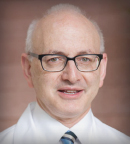
Stephen D. Nimer, MD
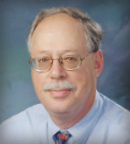
Charles A. Schiffer, MD
The ASH Mentor Award is being presented to Stephen D. Nimer, MD, of the Sylvester Comprehensive Cancer Center, and Charles A. Schiffer, MD, of Karmanos Cancer Institute, Wayne State University School of Medicine. Dr. Nimer, a physician-scientist specializing in myeloid leukemia and myelodysplastic syndromes, is being recognized for his impact on more than 100 hematology trainees with his tailored, encouraging, and community-focused mentorship. Dr. Schiffer, an expert in platelet transfusion therapy and the treatment of adult leukemias, is being recognized for mentoring the next generation of hematologists.
To learn more about these awards, visit hematology.org.

